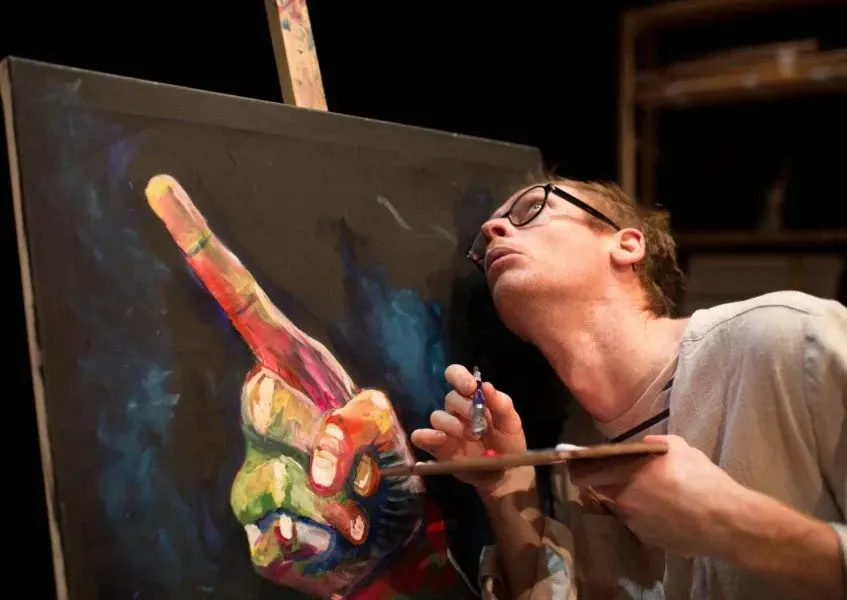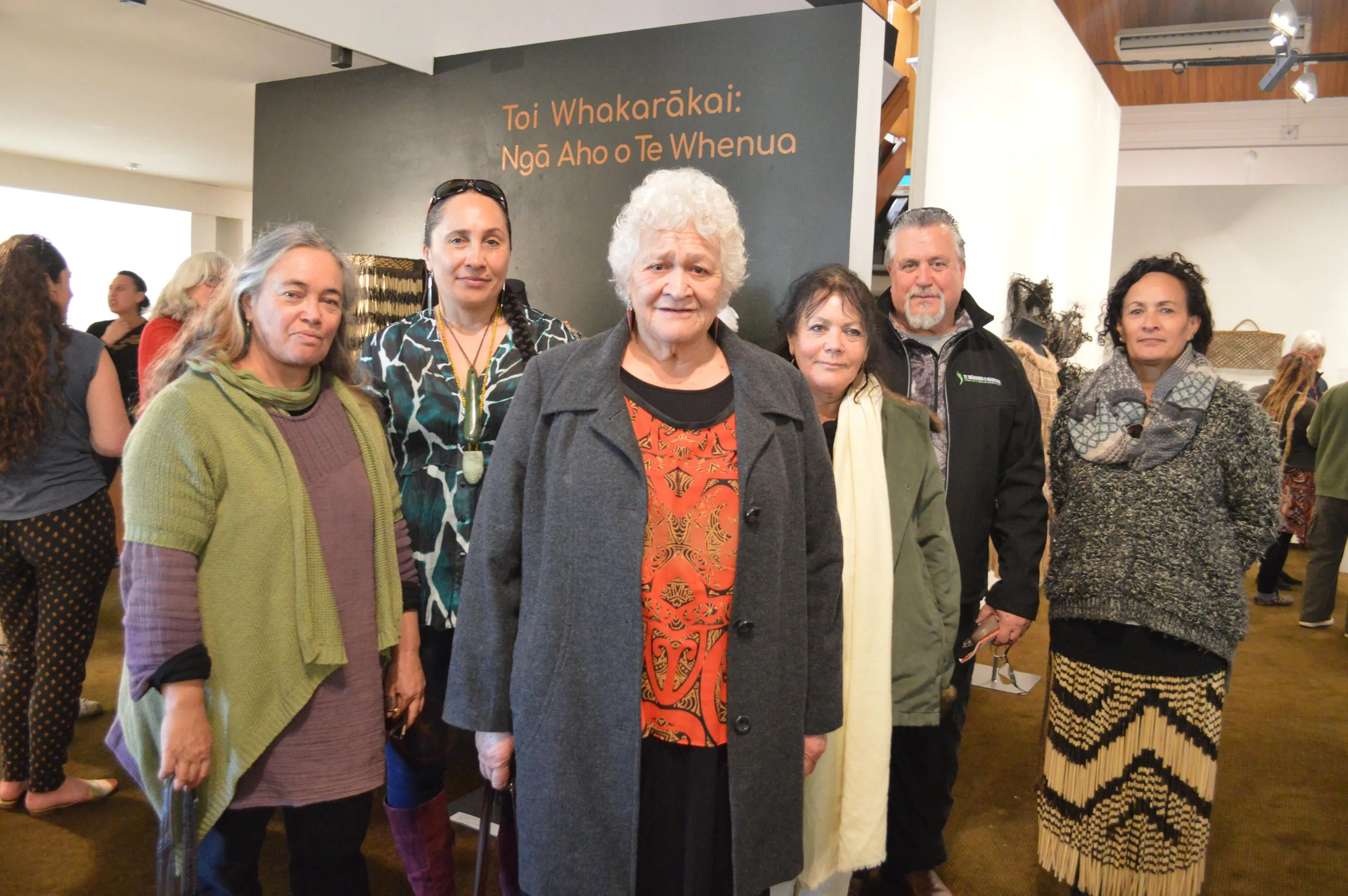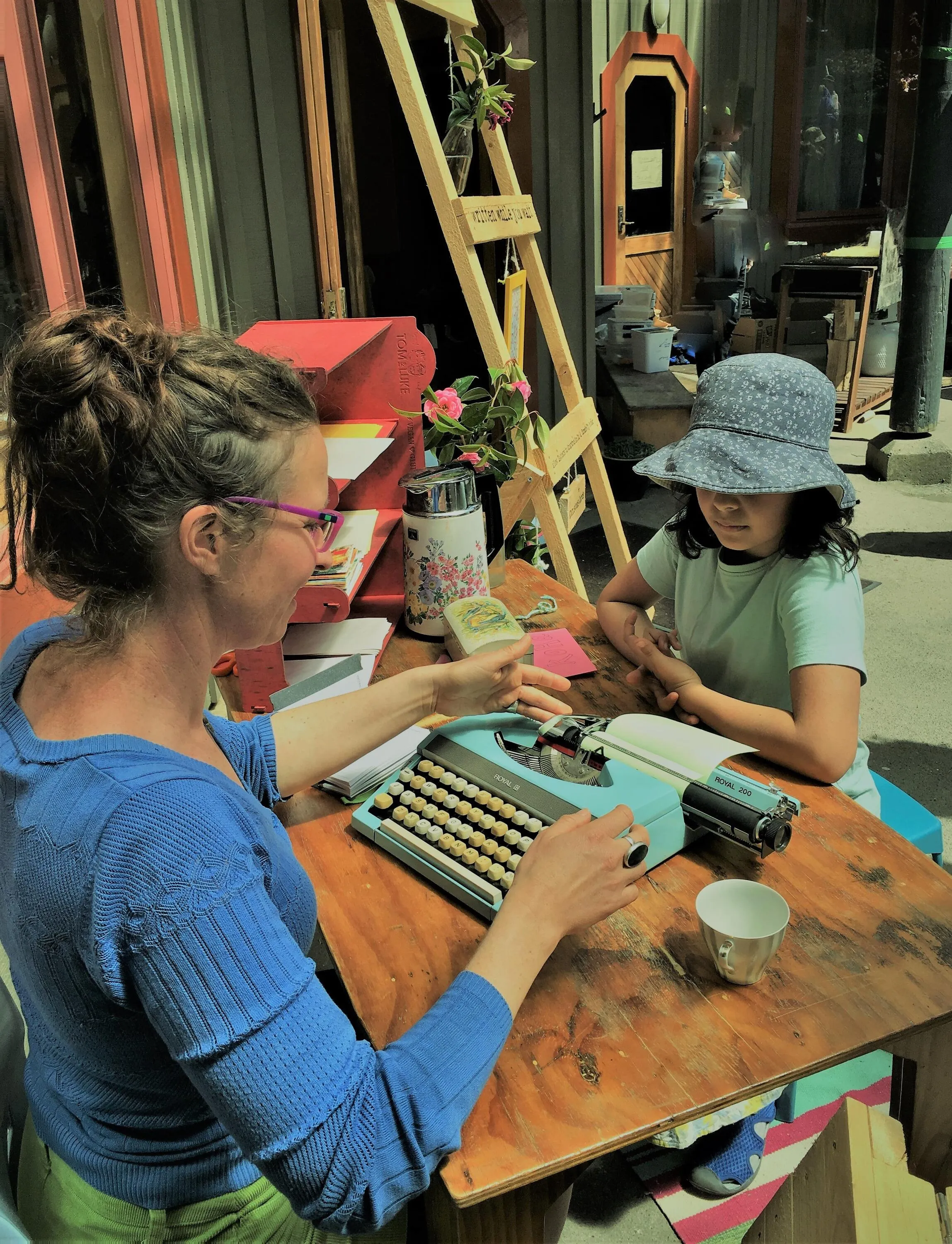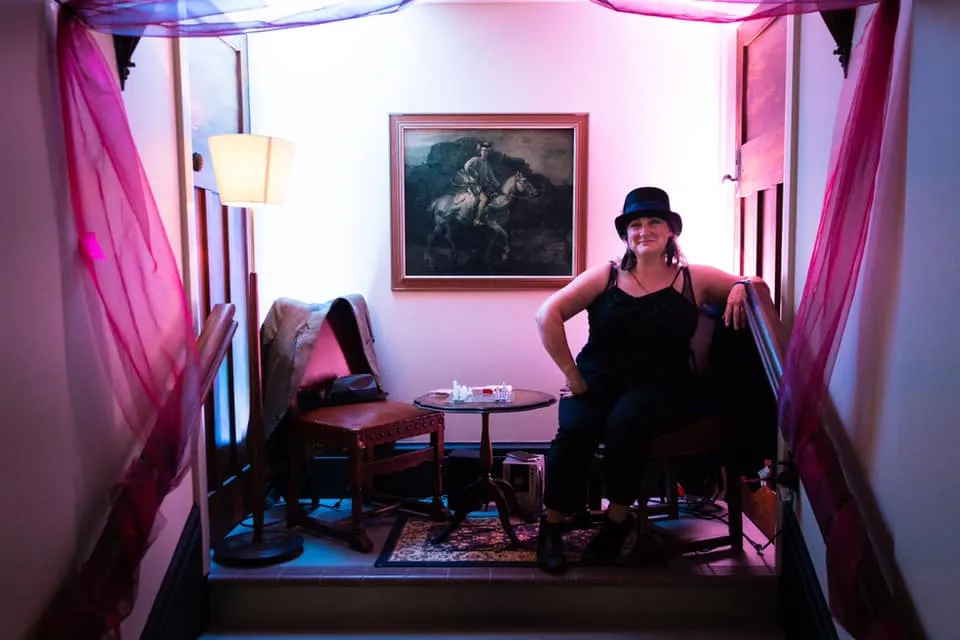Staging Comeback?
Written by
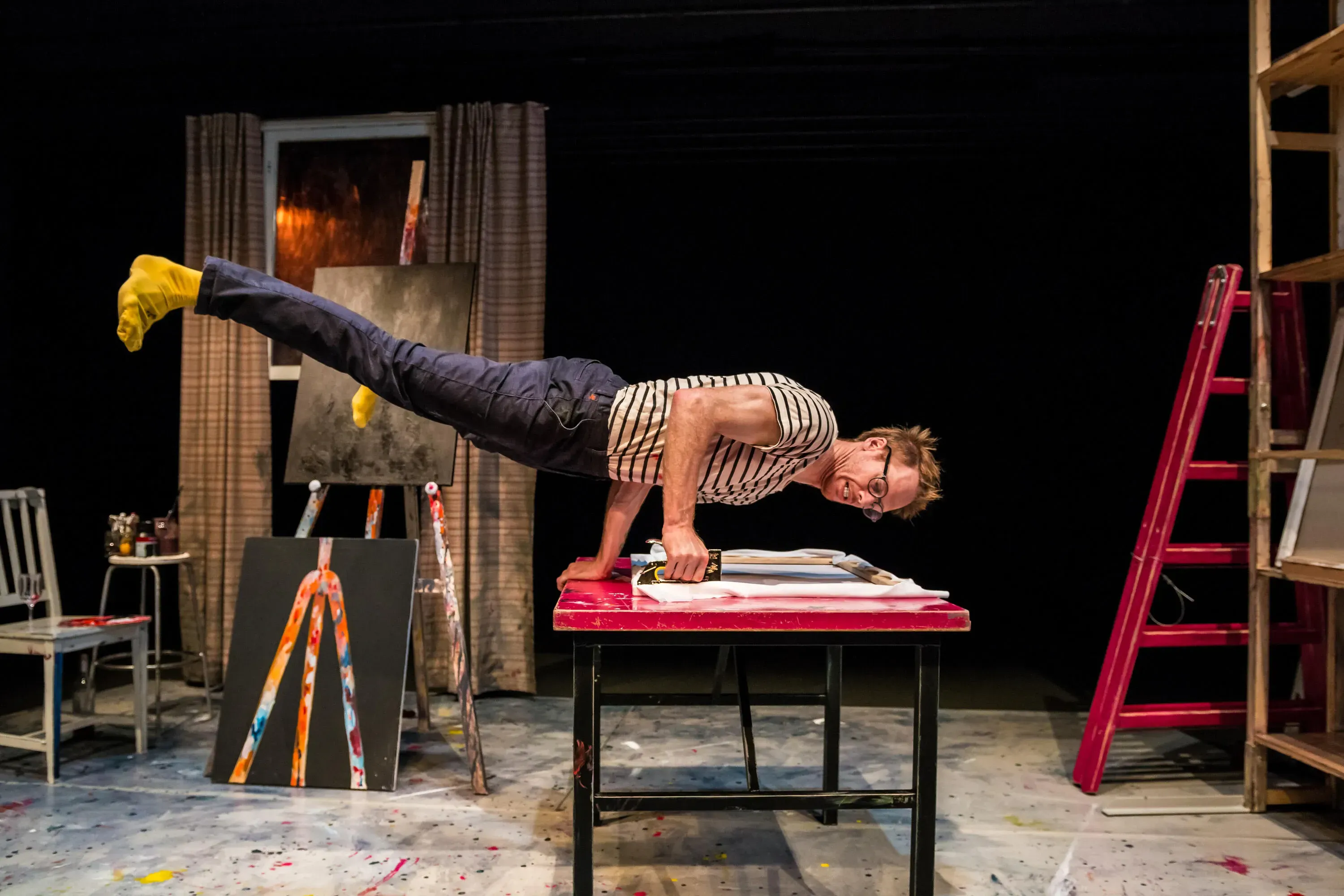
Still in the black
For many reading, you went back to some semblance of normality sometime after 8 June. That’s when we dropped to COVID-19 Alert Level one. In fact, it may have been in Level two, or three.
For those working in the performing arts however, any kind of normality remains a long way off.
It’s only now, four months on from Level four lockdown starting that some - not all - theatres are reopening, and on a limited scale. That has a huge effect on theatre workers. The film industry is in growth mode, galleries are by and large back open and local music is starting to fill the gaps left by absent international touring acts. But in theatre and dance, beyond smaller tour-ready shows, much of our theatre remains black.
Not back on the boards In Auckland just yet
For Auckland Theatre Company it will be something like 27 weeks, or half a year in the black. They’ve announced a resumption with the Back on the Boards Theatre Festival in September (13th Floor story here), and then in November the musical Hedwig the Angry Inch - its first piece of programming that can appear to schedule.
Artistic Director Colin McColl provided a welcome, generous and honest face to this in this ATC video. “It’s no simple task to produce theatre productions of scale,” McColl says, strolling around an empty theatre, “they take months of planning before they ever reach the stage. And when lockdown began we had to make the decision to postpone, cancel and repurpose many of the productions in our 2020 season and unfortunately, we’re unable to reverse that decision now. Of course, we’re as keen to get back in the theatre as you are...”
Sad but welcome words from one of the greats of the New Zealand theatre industry.
Uptown in Auckland, Q Theatre has raised $150,000 through public fundraising, as announced by Jennifer Ward-Lealand. Their words are also honest: “We've got a huge battle on our hands in order to be able to fully reopen in 2021.”
2021 is still a long way away. Back in May, Q’s significance was well described by former Executive Director Angela Green (now at New Zealand International Festival of the Arts) on Facebook as part of the fundraising drive: “Q is a home for the next big things and legends alike. A performing arts scene without Q will undo 30 years of hard-won progress: since the last Auckland independent theatre closed (Watershed).”
Meanwhile, Auckland’s Basement Theatre has recently announced it will reopen in August, with Reunited, a season of shows that were cancelled over the Autumn and Winter period. I am loving the Live Laugh Love series they’re running with artists on their homepage.
Around the theatres
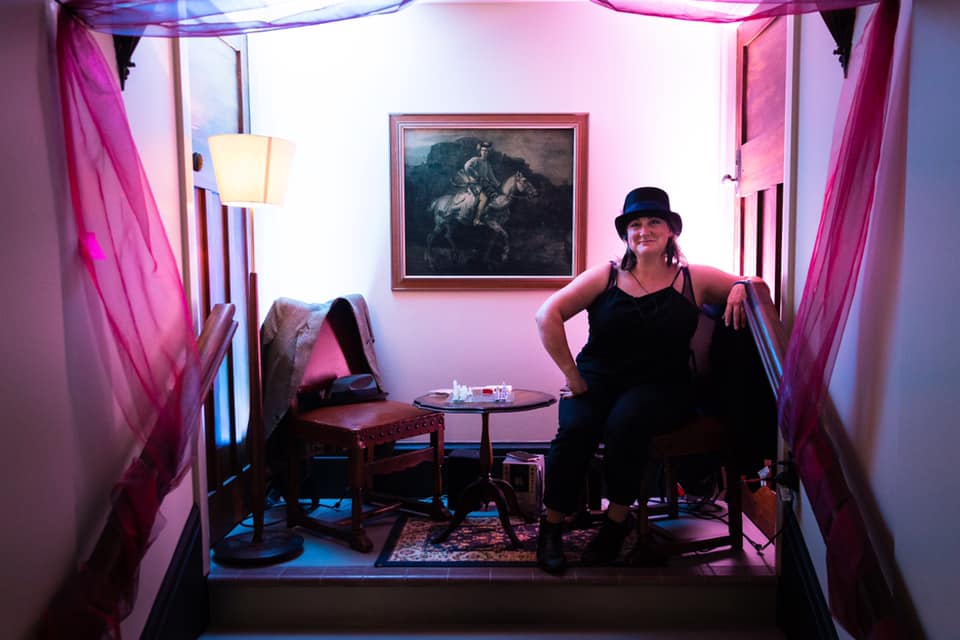
Hannah Clarke.
Christchurch bastion the Court Theatre is limited to small shows and their updated season doesn’t start until October. Like ATC, they had to make big decisions early on, having cancelled their big June production of the musical Rent back in March.
In other Court news, The Press reports this week on design plans being underway for their new central city theatre. But the main message is that their opening date has been pushed back a whole 12 months, from October 2022 to late 2023.
In Wellington, Circa Theatre is slowly reopening with smaller shows but limiting capacity in its main 224-seater theatre to 140 punters. Across town at BATS Theatre, there’s good news that former Fringe director and a regular BATSter Hannah Clarke has been recruited for the new position of Partnerships Programme Developer - thanks to a Creative NZ Staff Placements fund.
Crunching the Play Numbers
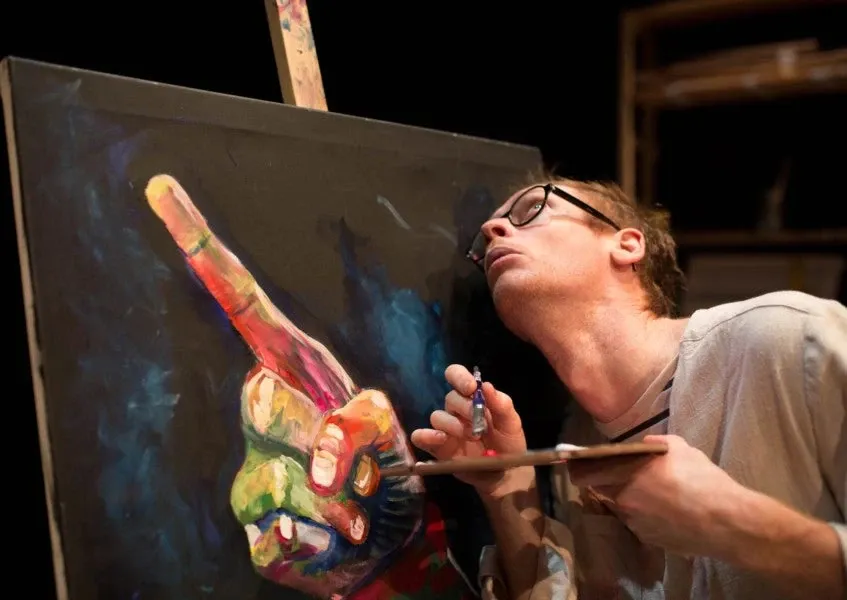
The Artist at Circa Theatre.
New Zealand playwrights agency Playmarket license New Zealand plays for production; they can keep an eye on how things are tracking. In their July newsletter, director Murray Lynch wrote, “I went to the theatre on 24 June [The Artist at Circa] for the first time since lockdown; there were safety precautions in place and there was no feeling of unease among the audience. Let us hope this is true throughout the country and we can sustain our confidence that it is safe to see plays again.”
New Zealand play production is no small fry. Lynch reports in the ebulletin on their 2019 statistics for New Zealand plays; 343 production licences and 32 international licences. A New Zealand play opening for every day of the year. And this doesn’t account for 100s of devised works and emerging works by theatremakers not represented by a playwrights’ agent. Yet theatre artists are anything if resilient - a look at Theatrereview tracks all sorts of theatre popping back up since 8 June: One Hundred Words for Snow at the New Anathaneum in Dunedin (reviewed by Helen Watson White), for example, or The Quarantine Diaries with The Court Youth Theatre (reviewed by Ruth Agnew).
Bring on Phase Two
Which brings us to Creative New Zealand, who carry the biggest load in terms of public funding for the performing arts. They’ve announced some details in the past week on their phase two funding. The flurry of funding can be hard to get your head around, so it's pleasing this week to have Kate Powell’s TBI write up on the PAANZ (Performing Arts Association New Zealand) special online hui on Tuesday with three key CNZ funding managers. The hui video is here.
Cath Cardiff, Senior Manager, Arts Development Services says, that the majority of the additional $25 million provided to CNZ in the 2020 Arts budget (its biggest funding boost in two decades) will be used over the next 12 months for this investment plan. It includes funding for “adapting regular arts grants, special opportunities that had to be suspended due to COVID-19, new schemes, regional arts development, key arts organisations and Creative Community Schemes.”
Art and culture ministerial boost
The Ministry for Culture and Heritage has updated information on its website relating to the cultural recovery fund. No new funding details have been announced, except that there will be updated information in August and besides the exceptions (of capacity building via CNZ and PACE via the Ministry of Social Development) the Ministry itself will deliver the programmes.
Turn up the music
Things are moving faster for live music as venues, big and small, open. The Christchurch Town Hall, for example, reopened on Sunday with a free concert by the New Zealand Army Band. As The Press reports, this had the public queuing up 90 minutes beforehand - just like in the good old pre-Netflix days.
Meanwhile, some of our leading musical acts are hitting the road and lining up the big gigs that punters might usually have saved their pennies to give over to international touring acts. Benee will play shows in Dunedin, Christchurch, Wellington and Auckland in October, and they’re selling out. Last week L.A.B. became the first group to perform at Auckland’s Spark Arena since lockdown restrictions ended - and selling out as Stuff reports (well, with seating limits, that’s only technically a sellout). Shapeshifter have announced a big raving national tour starting Auckland Town Hall 16 October.
The big album release getting lots of media attention is The Beths’ new album Jump Rope Gazers, with an accompanying 16-date show underway which, as Stuff reports are seeing extra shows added to make it their largest tour yet.
Things are not looking so good for a range of international acts who rescheduled for dates later this year. Watch that space.
How are we remembering lockdown?
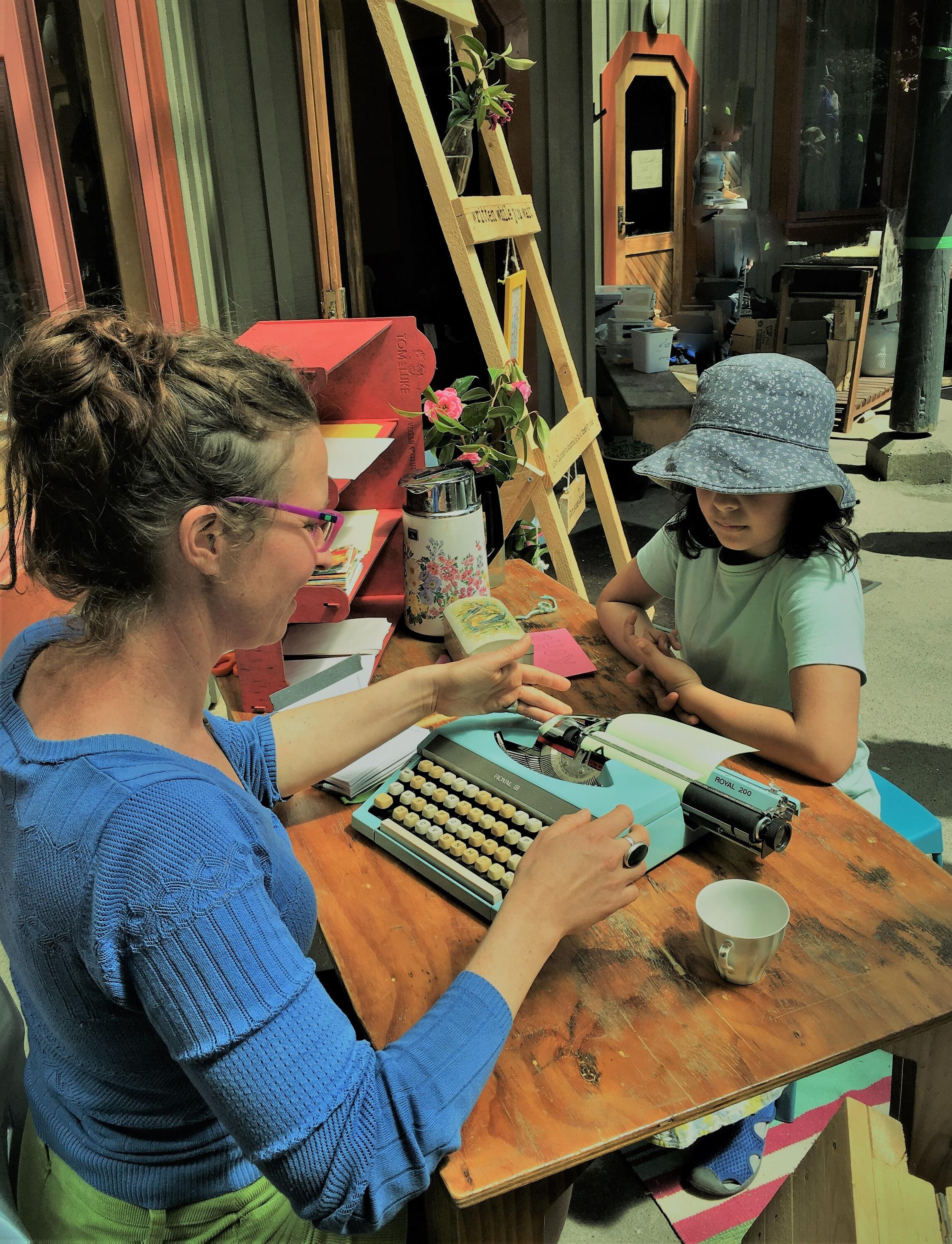
Lockdown Laundry.
Welcome to post-lockdown memory lane, time spent remembering what we learnt and people who made a difference. Here are three interesting projects happening in my region of Wellington.
Firstly, Te Papa is ensuring lockdown is documented; collecting everything, as Stuff reports, from the “Curve Crusher” tote bag, featuring Director-General of Health Dr Ashley Bloomfield, official government posters to a muka facemask made by Matthew McIntyre-Wilson.
Due to start scrolling nightly on the exterior of Te Papa from 20-22 July is Mihi, a giant endless scroll of names “rising into the sky” to celebrate those who have worked to eliminate COVID-19. Anyone can add names they’d like to celebrate. It’s the work of artists Marcus McShane and Claire O'Loughlin, and here’s a test example from last year of what it will look like.
Finally, public art project, Lockdown Laundry, allows people to have their deepest, most anonymous memories from lockdown aired on a laundry line after being typed up by Katja Starke on a typewriter. It’s visiting libraries around the Wellington Region, as she explained to Jesse Mulligan.
Opportunity knocks for film industry
As California goes back into lockdown, thoughts swing to the investment being made here currently in film and television production. Opportunity knocks. A few new initiatives indicate the global positioning of this.
CineMāori (as a title, a cute but rather bastardised blend of Te Reo and English) has been established by the Wairoa Māori Film Festival as a platform to popularise Māori films and filmmakers through online presentation. Their first collaboration has been with Auckland Council to present Matariki on the Move - Kiriata online with three short film programmes.
Last year, Wellington was named a UNESCO City of film (there are now 18 such cities decorated by the United Nations Educational, Scientific and Cultural Organisation) and an office has now been established (according to Mayor Andy Foster). Whānau Mārama: The New Zealand Film Festival have announced that the best film in Ngā Whanaunga Māori Pasifika Shorts, judged by an international jury, will receive the Wellington UNESCO City of Film Award for Best Film. The award is the beginning of a three-year partnership between Whānau Mārama and the Wellington UNESCO project to promote cinema in the region with “particular focus on Māori and Pasifika film and makers, film heritage and youth.”
RNZ’s Standing Room Only programme has been talking to various members of the film industry over recent weeks and this week Lynn Freeman spoke to film crew recruiter Graeme Tuckett about how, as one of the few functioning film industries in the world, it is at the moment currently “accelerating very quickly”.
In other film festival news of note, Stuff reports on how Rūrangi, a trans-centred web series will be the first of its kind to premiere at the festival later this month, with its gender-diverse cast and production crew.
Dominic Godfrey at RNZ also notes in this Dateline Pacific item that this is the first festival that a Pacific director, Tusi Tamasese, has been on a selection panel and the strength in Pacific filmmaking in the festival.
Arts and education
Discussion on the concerns around long term support of arts in education alongside the government’s Creatives in Schools programme has been picked up again on Standing Room Only with Perry Rush, who heads the Principals Association and artist-educator Gabby O’Connor.
Speaking of embedding artists in schools, now is a good time to be considering how high-quality art projects can improve your community relationships through artist in residency schemes. Let the Governor-General lead the way! Troy Kingi has been announced as the latest Mātairangi Mahi Toi Māori Artist in Residence at Government House, as Stuff reports. The residency, a partnership with Massey University, sees Kingi work on his fifth album, A 75+ Year Trip to Perpetual Sleep, to be recorded at the University’s College of Creative Arts’ music studio.
Silver Scrolls shortlist
In other music news, the Top 20 shortlist has been announced for this year’s Silver Scrolls songwriting awards, and it’s dominated by women artists. Undertheradar have the news and a playlist.
Arrivals, departures and accolades
Following the departure of Melanie Oliver at the Dowse Art Museum as Senior Curator, welcomed now is Chelsea Nichols, previously Curator Modern Art at Te Papa.
Meanwhile, just announced - Alice Hutchison has resigned as Director of the Tauranga Art Gallery. Mary Stewart has come into the role of Interim Gallery Director from this week. Stewart has previously been a board member of The Tauranga Art Gallery Trust and is expected to hold the position for up to six months.
In literature, Paula Morris has been named the New Zealand Society of Authors President of Honour and will give the Janet Frame Memorial lecture in September. Paula, among many other things, is a founder of the website Academy of New Zealand Literature.
Places to see, people to admire
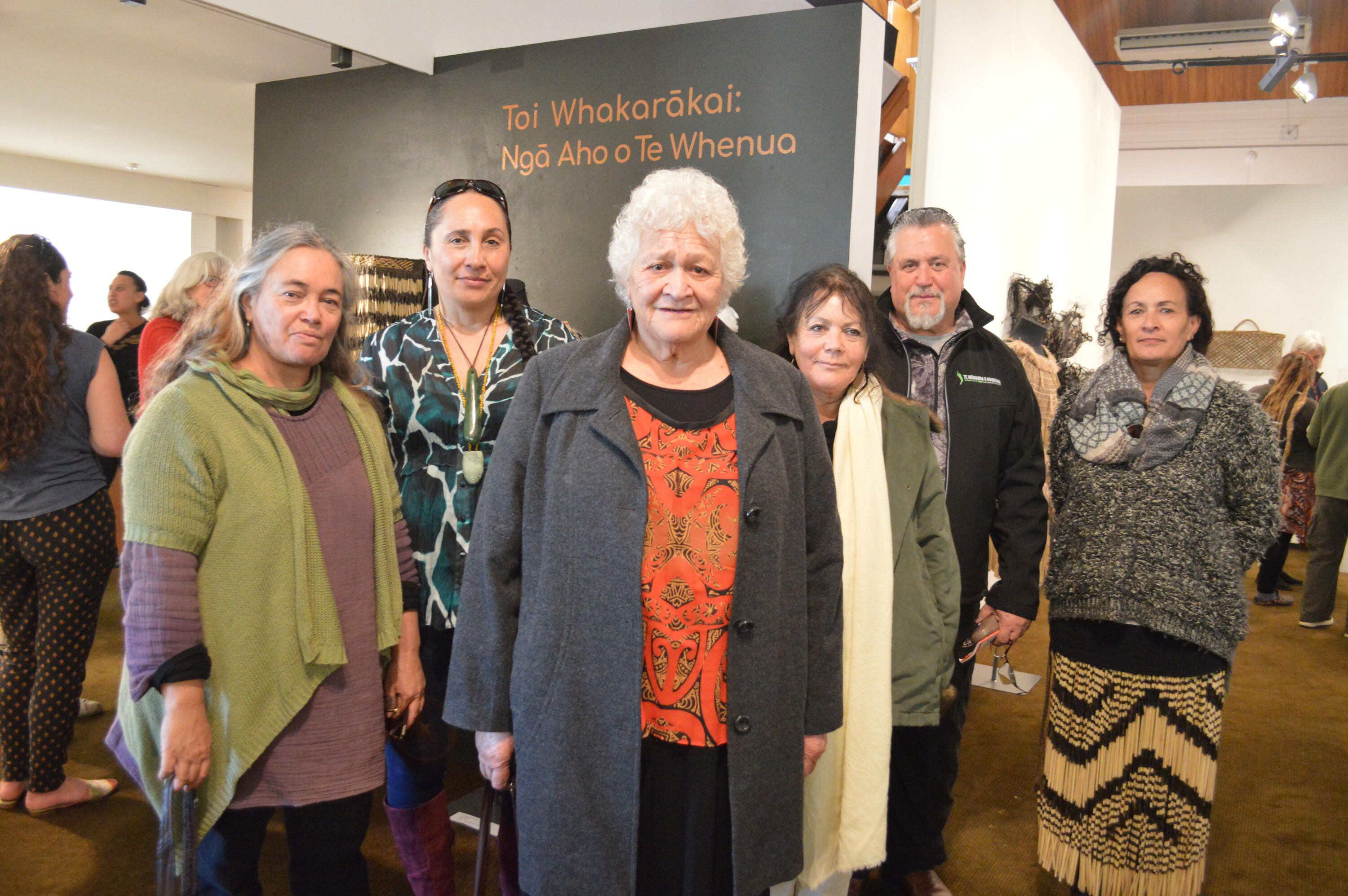
Weavers and carvers past and present from Te Wānanga o Raukawa at Mahara Gallery Waikanae for Matariki Photo: left to right: Pip Devonshire, Hinepūororangi Tahupārae, Whaea Sonia Snowden, Dianne Prince, Chris Gerretzen and Elaine Bevan.
Matariki celebrations are in full swing and Mahara Gallery Waikanae have an impressive-looking exhibition, as the Kapiti News reports, featuring 54 mahi toi, with artworks by 30 weavers and carvers who are past and present tauira (students) and tutors of Ōtaki's Te Wānanga o Raukawa.
Across the Tararuas in Masterton, Come Sew With Me is a remarkable creative project that’s now been running for three years - part vintage sewing machine museum, part community-making space. Founder Heather Bannister talked to RNZ’s Jesse Mulligan about a recent funding boost.
Is there a more unfashionable artform right now than the radio drama? Time then for a revival! And how welcome to see it defended (“neglected”, “underappreciated”) by playwright Nathan Joe in this Pantograph Punch article and slot on RNZ’s Nights.
And it’s been a busy publishing week for arts journalist Kate Powell. Here’s an excellent interview with the astonishing dance and theatre-maker Rodney Bell here on TBI.
